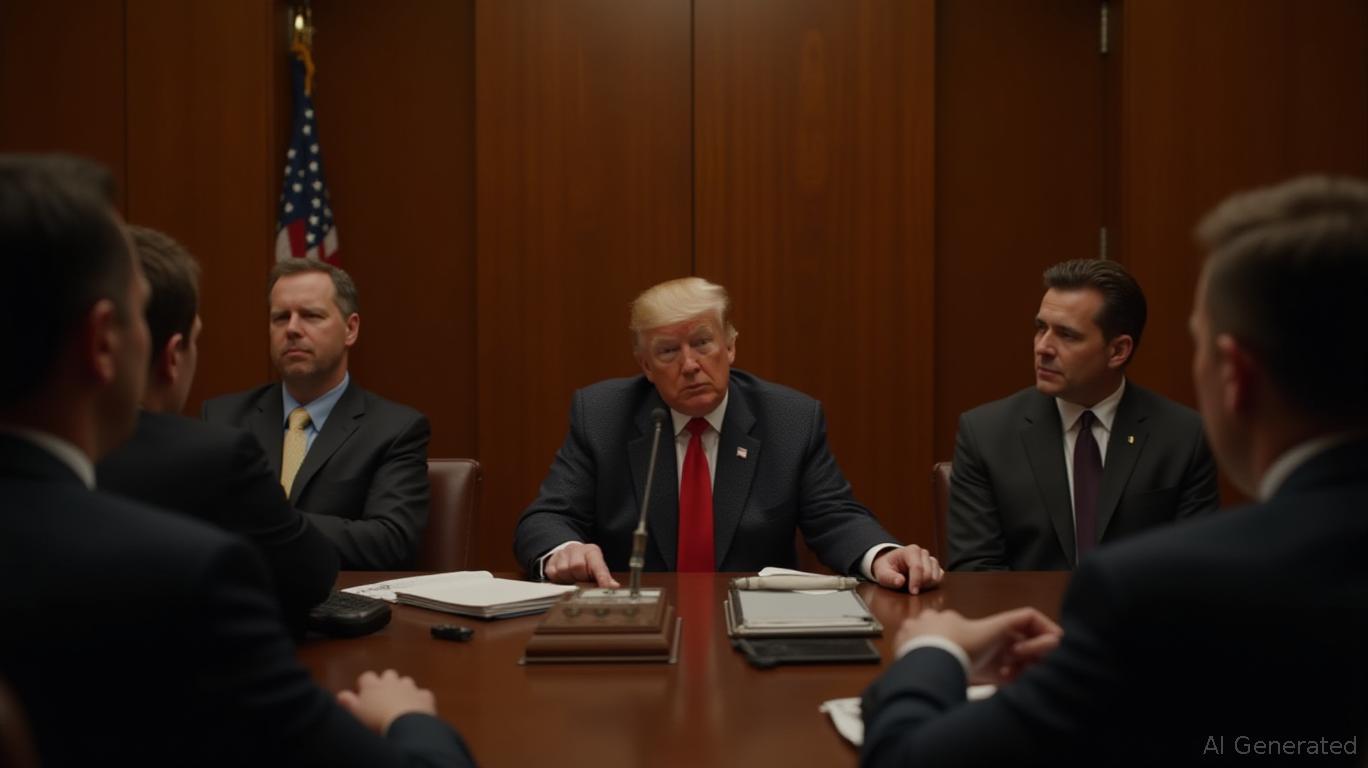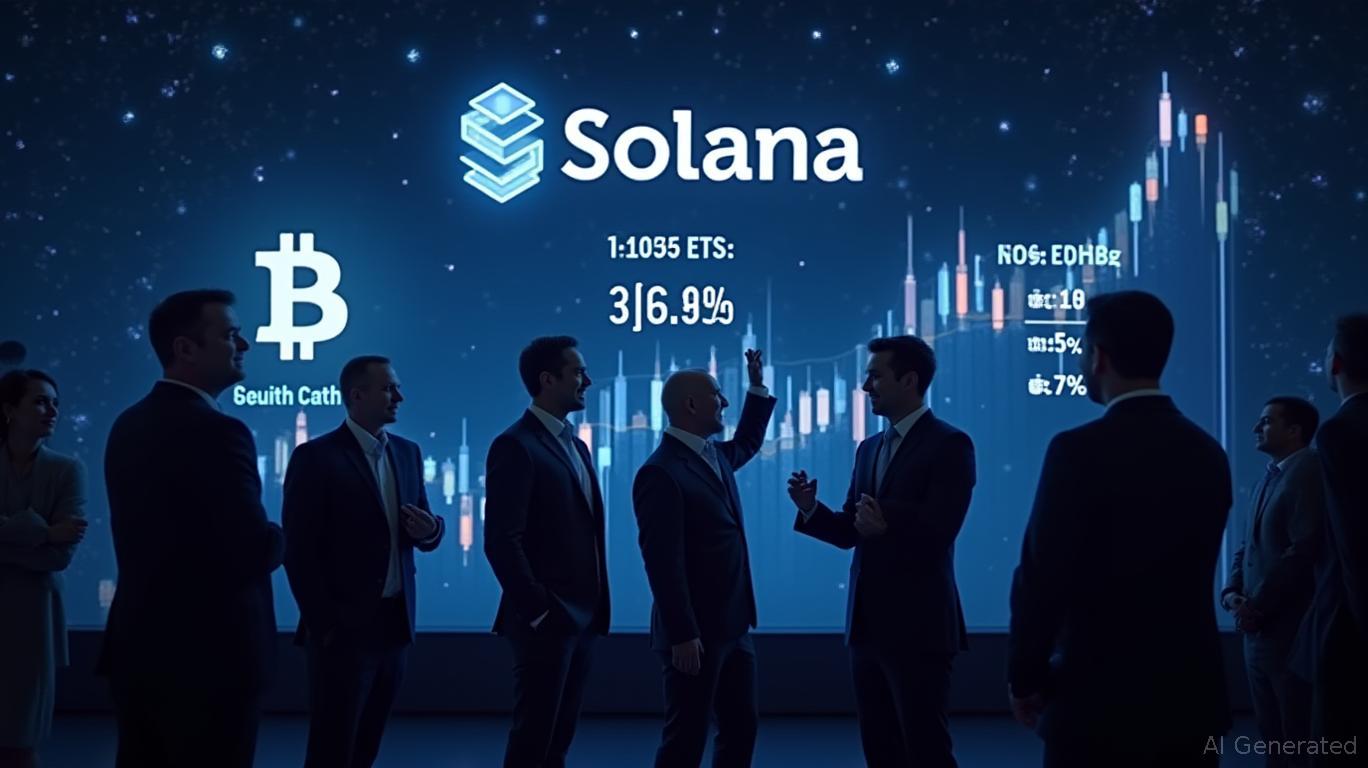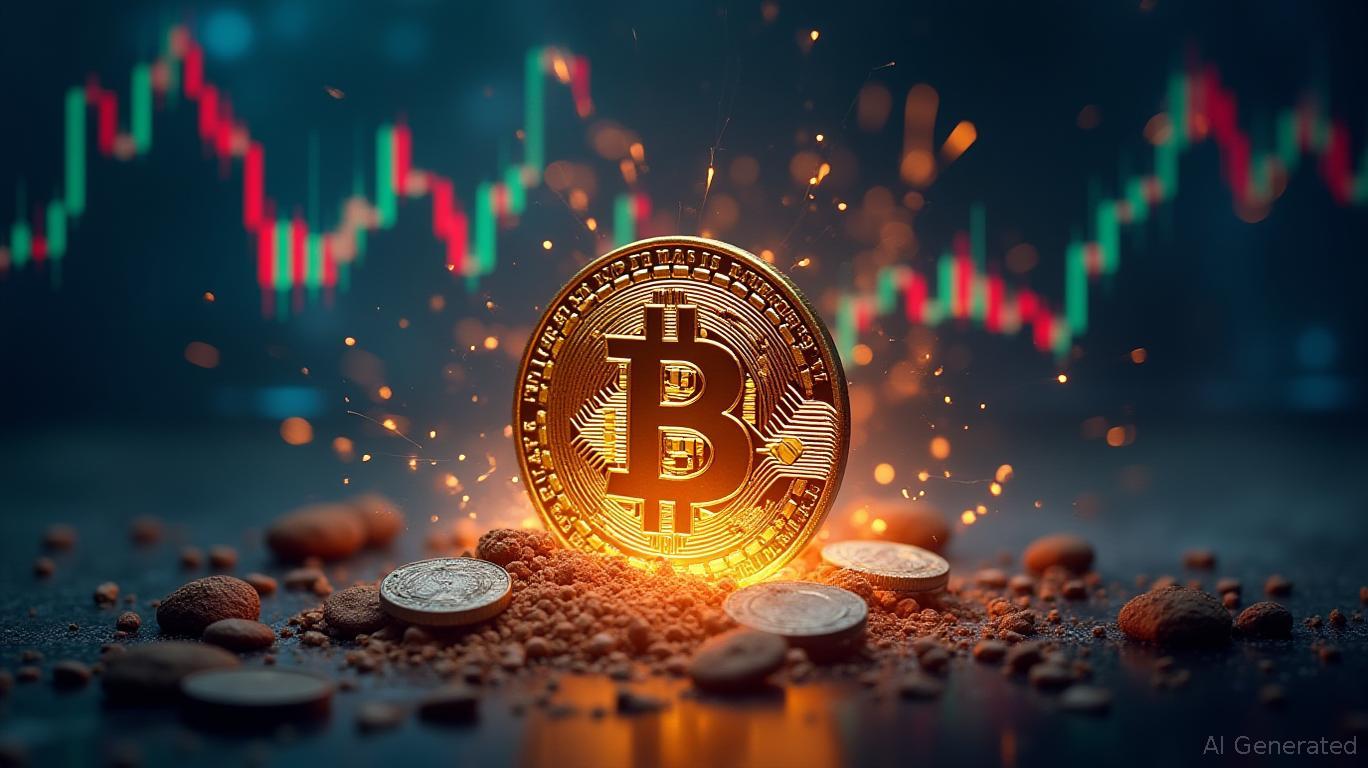Landmark IEEPA Lawsuit Questions President's Authority to Enact Wide-Ranging Tariffs
- U.S. Supreme Court will review Trump's IEEPA tariffs on November 5, testing presidential authority to impose broad import duties. - Lower courts ruled against tariffs, citing "major questions doctrine" requiring clear congressional authorization for policies of vast economic significance. - Case could redefine executive-legislative power balance, with $89B in collected tariffs at risk and potential financial burdens on importers/taxpayers. - Legal scholars warn IEEPA tariff authorization would create unc
The U.S. Supreme Court is scheduled to hear oral arguments on November 5 in a pivotal case that will examine President Donald Trump's power to enact broad tariffs under the International Emergency Economic Powers Act (IEEPA) of 1977, as reported by
The central question is whether Trump exceeded his legal powers by invoking IEEPA to levy tariffs—ranging from 10% to 50%—on imports from nearly every trading partner,

The implications are enormous. By September 2025, tariffs enacted under IEEPA are projected to have brought in $89 billion, helping to reduce the federal deficit and fund programs such as port fees for ships linked to China, according to
Constitutional experts and advocacy organizations have voiced concerns, pointing out that Article I of the Constitution gives Congress the authority to "lay and collect duties," a responsibility it has traditionally delegated to the executive only under certain circumstances, as reported by ABC News. The Brennan Center for Justice contends that permitting IEEPA to justify tariffs would amount to an "unconstitutional delegation" of legislative power, undermining checks on presidential authority. In contrast, the Trump administration argues that striking down the tariffs would weaken America’s leverage in international trade talks and embolden foreign rivals.
The possibility of Trump attending the hearing lends additional significance to the case. While previous presidents have participated in Supreme Court ceremonies or appeared as attorneys, none have sat in on oral arguments, the Japan Times notes. His attendance would highlight the personal importance of the case and could signal either the administration’s confidence or its sense of urgency as the justices deliberate. The Supreme Court’s ruling, anticipated by the end of the year, will ultimately decide whether the president’s tariff approach will be upheld or struck down amid legal and constitutional scrutiny.
Disclaimer: The content of this article solely reflects the author's opinion and does not represent the platform in any capacity. This article is not intended to serve as a reference for making investment decisions.
You may also like
Bitcoin News Update: Analyst Highlights How MSTR's Convertible Bonds Prevent Forced Bitcoin Sales
- MSTR's convertible debt structure allows debt repayment via cash, stock, or both, avoiding Bitcoin sales during market downturns. - The company raised €350M through a 10% dividend-bearing euro-denominated preferred stock offering to fund Bitcoin purchases. - Q3 results showed $3.9B operating income from Bitcoin gains, driving a 7.6% stock surge to $273.68 post-earnings. - Risks persist if Bitcoin fails to rally in 2028, potentially forcing partial liquidation amid $1.01B 2027 debt obligations. - MSTR hol

Solana News Today: Solana ETFs Surpass Bitcoin as Staking Returns Attract Institutional Investments
- U.S. spot Solana ETFs (BSOL/GSOL) attracted $199M in 4 days, outperforming Bitcoin/Ethereum ETF outflows. - 7% staking yields drive institutional inflows as investors rotate capital from major crypto assets. - Despite ETF success, SOL price fell below key support levels, raising concerns about $120 price floor. - Strategic staking and treasury purchases boosted Solana's institutional appeal, with $397M in staked assets. - Market remains cautious as ETF competition intensifies, with Bitwise's BSOL outpaci

Bitcoin News Today: Bitcoin’s Fourth Quarter Surge: Impact of Trade Disputes, Stronger Dollar, and Evolving Global Economic Strategies
- Bitcoin fell nearly 15% in October 2024, its worst quarterly start since 2022, driven by U.S.-China trade tensions, dollar strength, and macroeconomic caution. - A 100% U.S. tariff on Chinese imports and Fed rate-cut delays exacerbated selloffs, triggering $1.3B in liquidations during a flash crash below $103,000. - Key support levels at $107,000 and $101,150 face retests as traders warn of further declines, with market cap dropping below $3.6T amid fragile liquidity. - Wintermute denied Binance lawsuit

BNB News Today: AI and Blockchain Unite to Transform the Industry Through Decentralized Innovations
- ChainOpera, an AI-powered blockchain project, raised $40M+ in funding to expand decentralized infrastructure, highlighting growing investor confidence in AI-blockchain convergence. - FedEx partners with ServiceNow to implement AI-driven supply chain analytics, aiming to boost operational efficiency through real-time disruption prediction and automation. - BNB Chain emerges as an AI innovation hub with Avalon Labs' AI-MaaS marketplace and AEON's autonomous payment SDK, enabling decentralized AI model depl
